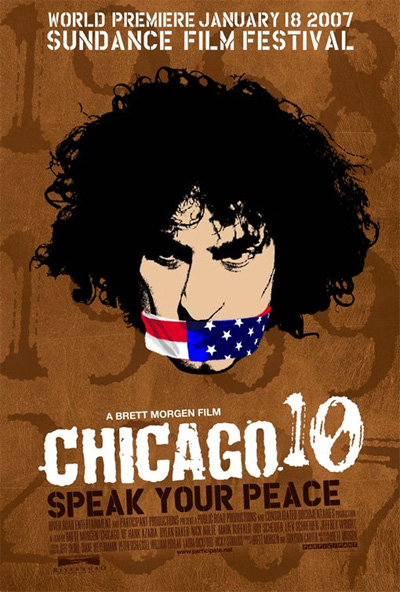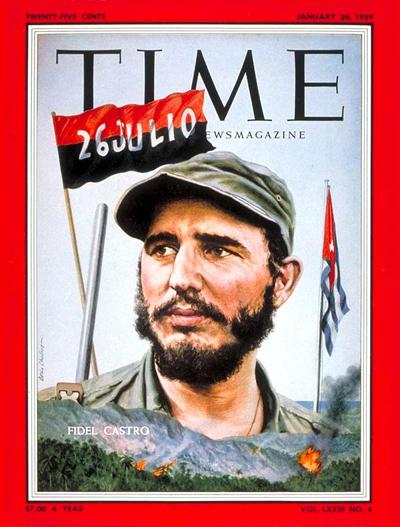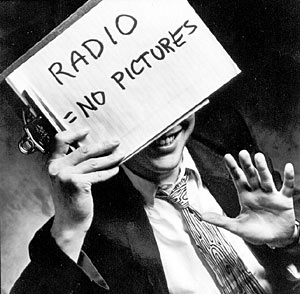 FRESH AIR
FRESH AIR![]()
Director Brett Morgen joins Fresh Air‘s Terry Gross to discuss his new film, Chicago 10. Morgen uses archival footage and animation techniques to tell the story of the anti-war activists known as “the Chicago 8” — a misnomer, he says, and one he corrects in his film title.
Outside the 1968 Democratic Convention in Chicago, protesters rallied to show disapproval of the Vietnam War. They hadn’t been granted demonstration permits, however, and for a week, they were involved in violent conflict with Chicago police.
Less than a year later, eight of the protest leaders — the so-called Chicago 8 — were indicted by a federal grand jury on counts of, among other things, conspiracy and incitement to riot. All were eventually found not guilty on conspiracy, but five were found guilty of violating the 1968 Anti-Riot Act. In 1972, those convictions were reversed.
Challenged by a lack of courtroom footage, and inspired by a quote from lawyer Jerry Rubin that described the proceedings as “a cartoon show,” Morgen chose motion-caption animation (most famously used in such films as The Polar Express ) to re-create the trial. Voices are supplied by actors including Liev Schreiber, Mark Ruffalo, Dylan Baker, Hank Azaria, Nick Nolte, Jeffrey Wright and Roy Scheider.
In the film, scenes move from the courtroom to Chicago streets, telling the story of a trial that held the nation’s attention and grappled with issues of individual liberty. Morgen sets the action against contemporary music — Eminem, the Beastie Boys, Rage Against the Machine — because he “wanted the music to be the soundtrack of my audience’s lives, not their parents.” In his conversation with Terry Gross, Morgen plays court audio recordings from the 1968 trial, rarely heard since the trial. And he explains his film’s title, which echoes an observation from lawyer Jerry Rubin, who recalls that attorneys William Kunstler and Leonard Weinglass received contempt sentences in connection with the case.
THE RADIO TIMES
Hour 1
On February 17th, Kosovo declared its independence from Serbia, becoming the seventh state to emerge from Yugoslavia. Serbians protested in the streets and many countries including the United States, recognized Kosovo’s independence. We discuss the implications for the region and the challenges Kosovo will face with JULIE MOSTOV, Associate Vice Provost for International Programs at Drexel University. She has been studying and traveling to Southeastern Europe and the former Yugoslavia since the 1980s. Listen to this show via Real Audio | mp3
Yugoslavia. Serbians protested in the streets and many countries including the United States, recognized Kosovo’s independence. We discuss the implications for the region and the challenges Kosovo will face with JULIE MOSTOV, Associate Vice Provost for International Programs at Drexel University. She has been studying and traveling to Southeastern Europe and the former Yugoslavia since the 1980s. Listen to this show via Real Audio | mp3
Hour 2
We hear about post-Fidel Cuba from two journalists who have covered the region for many years. TIM PADGETT is Miami and Latin American Bureau Chief for Time Magazine and JOE CONTRERAS is Latin America Regional Editor for Newsweek Magazine. Listen to this show via Real Audio | mp3
 THIS AMERICAN LIFE
THIS AMERICAN LIFE
350: Human Resources
The true story of a secret room in the New York City Board of Education building. Teachers are told to report there instead of their classrooms. No reason is usually given. When they arrive, they find they’ve been put on some kind of probationary status, and they must report to the secret room every day until the matter is cleared up. They call it the Rubber Room. Average length of stay? Months, sometimes years. Plus other stories of the uneasy interaction between humans and their institutions.
